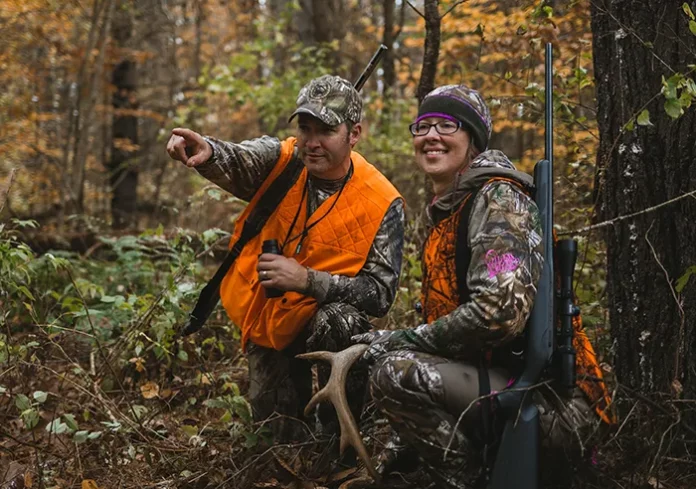The regular firearms deer hunting season opens Wednesday, November 8 in New Hampshire, a big day for the state’s over 60,000 hunters.
The firearms deer season runs from November 8 through December 3 in most of the state. In Wildlife Management Unit (WMU) A, the northernmost in New Hampshire, the season closes on November 26. Hunters should check the New Hampshire Hunting & Trapping Digest for WMU-specific regulations. This go-to publication is available online at www.wildlife.nh.gov/hunting-nh, at license agents around the state, or at Fish and Game headquarters in Concord. You will find additional information about deer hunting in New Hampshire on the Fish and Game Department website at www.wildlife.nh.gov/hunting-nh/deer-hunting-new-hampshire.
For the first time in the Granite State, deer hunters have the option of registering their deer online this fall. To register your deer online, or to learn more about what to do following a successful harvest, visit www.wildlife.nh.gov/hunting-nh/deer-hunting-new-hampshire/how-register-your-deer. Physical registration stations will also remain an option for those who prefer the experience of in-person registration. To allow for collection of biological data, online registration will not be available during the first 3 days of firearms season, November 8, 9, and 10. Hunters must register their deer in person at a registration station on these days. Refer to page 28 of the New Hampshire Hunting & Trapping Digest or visit huntnh.com for a list of registration stations in New Hampshire.
Hunters are reminded not to use urine-based lures. These products can potentially spread Chronic Wasting Disease (CWD), a neurological disorder that is always fatal to white-tailed deer and moose. Synthetic lures are strongly recommended. If the bottle or package does not say “synthetic” the product is likely natural urine. Hunters traveling out of state should also remember that whole deer carcasses cannot be brought into New Hampshire from any jurisdiction that has documented CWD. A full list of CWD-positive jurisdictions and a list of what can be brought back into the state can be found on the Fish and Game website at www.wildlife.nh.gov/wildlife-and-habitat/wildlife-related-diseases/deer-diseases. Do your part to help keep our deer herd safe.
The public is encouraged to participate in protecting New Hampshire’s wildlife resources by reporting wildlife crimes. You can report violations to NH Fish and Game’s Operation Game Thief online anytime at www.wildnh.com/ogt or by calling the 24-hour hotline at 1-800-344-4262.
Hunters with full freezers are reminded that the New Hampshire Food Bank is seeking donations of USDA-approved processed deer. This venison provides a valuable source of protein for food programs around the state. For more information visit www.nhfoodbank.org.
